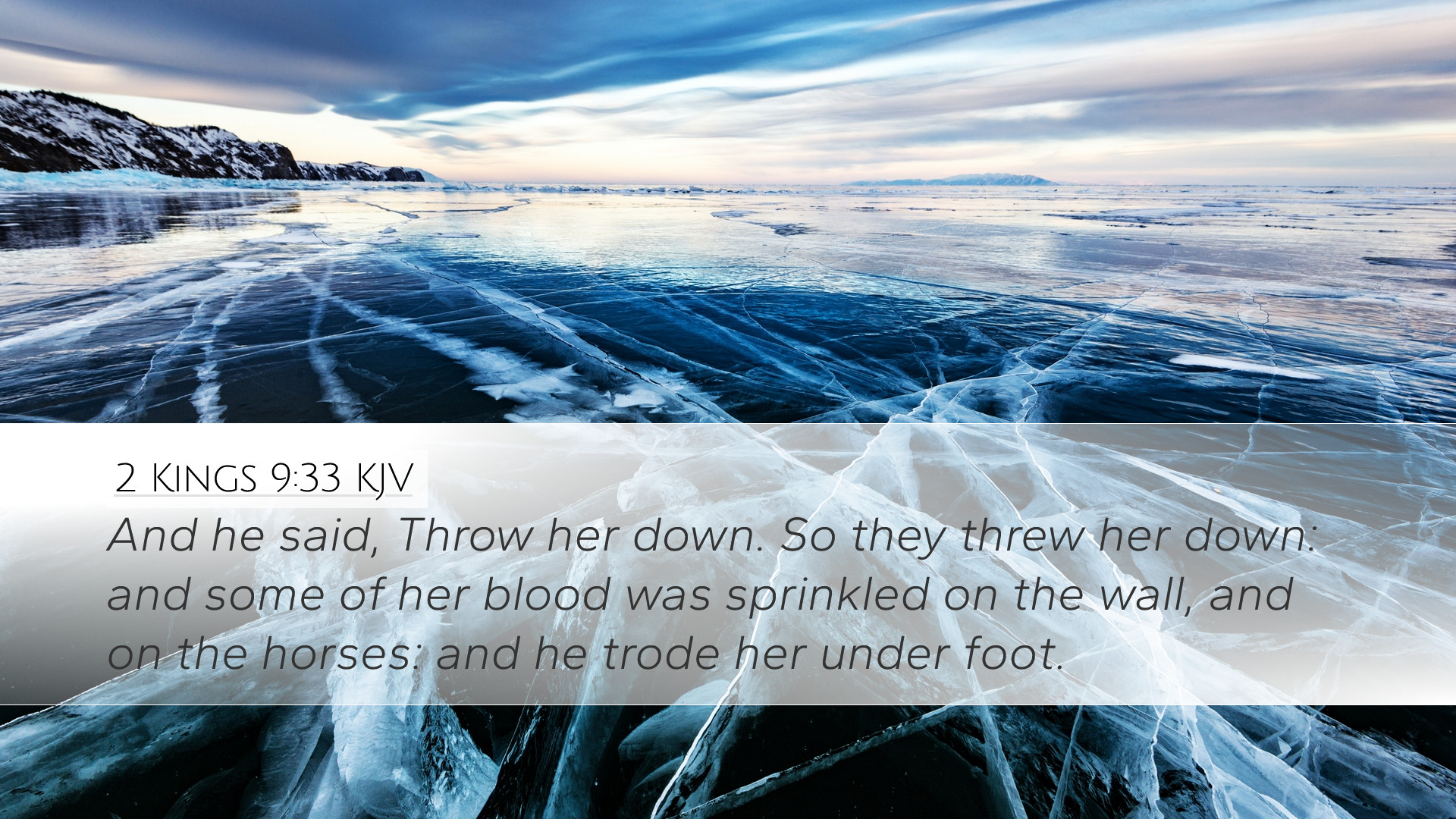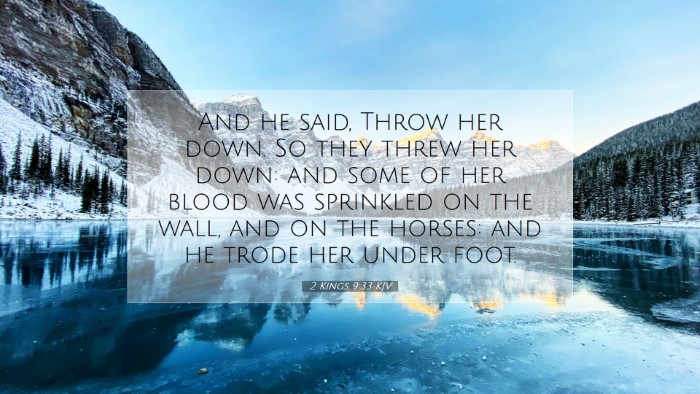Commentary on 2 Kings 9:33
Verse Context: 2 Kings 9:33 states, "But when Jehu went in, she met him with paint on her eyes and adorned head, and she said, 'Is it peace, you Zimri, murderer of your master?'
Introduction
This verse emerges at a pivotal moment during the anointing of Jehu, who was appointed to eradicate the house of Ahab. The confrontation between Jehu and Jezebel is marked by its dramatic tension and prophetic fulfillment. The phrase "Is it peace?" echoes the theme of conflict that runs through the narrative, while the epithet "Zimri" alludes to past treachery in Israel's history.
Textual Analysis
Jezebel’s Entrance: Jezebel’s appearance with painted eyes and adorned head emphasizes her role as a formidable and manipulative queen. Her make-up symbolizes the deception and allure she employed throughout her reign.
Jehu's Charge: Jehu is compared to Zimri, another king known for his violent usurpation. This title is significant as it not only highlights Jehu's character but also foreshadows the violent end that awaits Jezebel.
Commentary Insights
- Matthew Henry: Henry remarks on the irony of Jezebel attempting to maintain her royal dignity in the face of impending judgment. He notes her past manipulations and her misguided confidence in the face of divine retribution.
- Albert Barnes: Barnes provides insight into the cultural significance of Jezebel's cosmetics. He emphasizes that her adornment symbolizes a desperate attempt to maintain power and influence even when her fate is sealed.
- Adam Clarke: Clarke describes the historical context of Jezebel’s indignation. He explains that she embodies the rebellious spirit against God’s prophets and the ultimate consequences of such defiance.
Theological Implications
This verse offers a profound exploration of themes such as judgment, authority, and the consequences of idolatry. Jezebel’s confrontation with Jehu exemplifies the ultimate clash between a follower of God and the forces that oppose His reign.
From a theological perspective, the passage underscores the reality that divine justice will ultimately prevail over human wickedness, a reminder for believers of the importance of aligning with God’s will rather than societal power structures.
Pastoral Reflections
The account serves as a cautionary tale for leaders within the church. It calls for vigilance against the allure of power and control, which can lead to moral decay. Pastors are reminded to remain steadfast in their commitment to God’s truth rather than succumbing to worldly temptations.
Moreover, the verse encourages congregations to reflect on their response to authority and the significance of knowing when to stand firm against influences that contradict God’s word.
Interpretative Challenges
Scholars debate the extent of Jezebel's culpability, considering her as a symbol of idolatry and confrontation against God's chosen leaders. Understanding her character and motivations can be crucial for interpreting the dynamics of power during this historical period.
Conclusion
2 Kings 9:33 encapsulates the essence of conflict between divine judgment and worldly influence. As the narrative unfolds, it serves as a pivotal moment that moves toward restoration and redemption. For pastors, students, and scholars alike, this passage offers rich insights into the nature of authority, the consequences of moral compromise, and the ultimate sovereignty of God.


